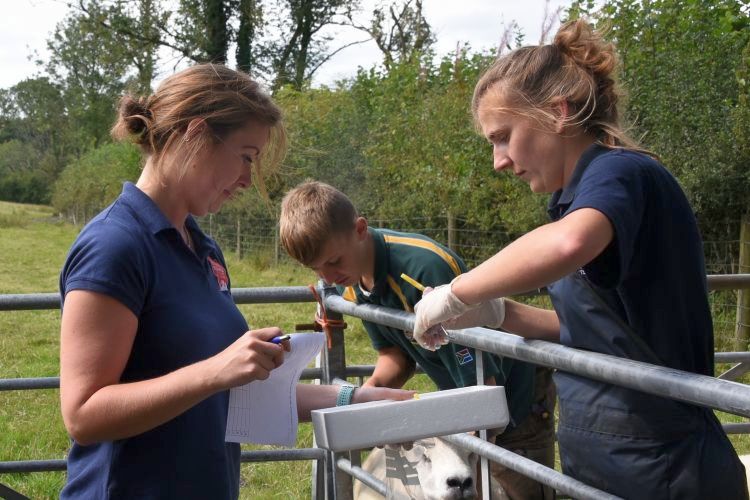
Farmers in North Wales are warned to be aware of the risk factors of liver fluke due to the wet weather experienced this past year.
Provisional NADIS fluke forecast for autumn 2019 has identified North Wales, along with North West England and Scotland as high-risk areas, with South Wales considered to be a low-risk area.
This is a result of the wet weather experienced this year, and it is anticipated that fluke challenges will be higher this season.
Liver fluke can be spread to both sheep and cattle leading to chronic health problems.
The disease can reduce fertility in livestock, lower growth rates and increase susceptibility to other conditions.
Dr Rebekah Stuart, Herd Health Executive at Hybu Cig Cymru – Meat Promotion Wales (HCC), warns that the incidence of liver fluke has increased over the last few years.
“Farmers should be aware of the risk factors which include a previous history of fluke infection on the farm or farm of origin, grazing wetter land or near muddy areas such as poached ground near gateways and troughs,” she explains.
“In order to combat the infection, it is vital that farmers ensure that the correct product is used at the most suitable time of year according to the life cycle of the parasite.
“It’s also advisable to discuss product selection with either your vet or suitably qualified person (SQP).”
The meat industry group has in the past funded PhD students who are carrying out research on liver fluke.
One piece of research looked at improving the control of liver fluke infection in cattle in the UK.
The work looked at farmers’ dependency on medication to control infection and the worry about resistance to the medication without anything new to replace.
It looked at controlling access to areas of potential snail habitat on farms by testing and treating sheep in spring using a product that targets adult fluke and reduces egg contamination of pasture.
The study found that there is considerable confusion amongst farmers about when to treat and what product to use at specific times of year.
